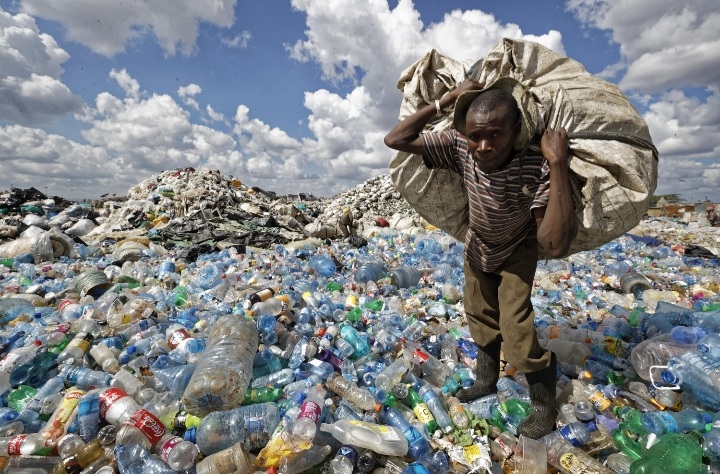Are plastic waste pickers important?

By Hauwa Ali
Millions of waste pickers globally, contribute to reducing air/water pollution by encouraging recycling of waste materials.
An estimated 20 million people around the world work as waste pickers, collecting plastics, aluminium and other valuable materials that have been discarded in our streets and dumpsites.
They play a critical role in encouraging the recycling processes by recovering end-of-life plastic products, and selling them to recycling facilities, thereby reducing plastic on landfills and preventing plastic leakage into the ocean.
These people often consists of urban poor and marginalized social groups who find a source of income and survival in waste picking.
Their activity is characterized by unsafe and unhealthy working conditions, low or irregular incomes and long working hours.
Some of their major challenges include: unfair and inconsistent prices from buyers of collected waste, No guarantee of regular income from waste picking as a livelihood and lack of access to information, markets, finance, training and technology. They also get little or no support from local governments.
The treatment of plastic waste pickers as insignificant, is also a great challenge, despite making valuable contributions to businesses and the environment.
As economic contributors, they provide crucial income by selling reusable plastics to enterprises to recycle or sell as middlemen to recycling companies, saving then the cost of producing new materials. They also sell to individual buyers who resell to make profit.
As environmental contributors, plastic waste pickers contribute significantly to environmental protections and preventing plastic waste pollution in oceans by recycling and reusing plastic materials that would otherwise end up in the environment.
By gathering plastics from public spaces, they contribute to cleanliness and help beautify the city. A recent report estimates that waste pickers collect 58 per cent of plastics, thus contributing significantly to supplying the value chain and avoiding plastic pollution.
Worldwide, waste pickers are not recognized for their contributions and do not have access to state-sponsored social protection.
Thankfully, this is changing, as waste pickers are being organized gradually. Membership-based organizations and other progressive entities are helping cities recognize the vital role waste pickers play, and they are encouraging authorities to design more progressive policies.
In countries like Brazil, where waste pickers are recognized and supported by governments and organized into strong cooperatives, waste pickers appear to have higher incomes than other workers in informal employment.
By contrast, waste pickers in Africa survive on meagre returns.
It is quite clear, what the plastic waste pickers have to offer: plastic waste collection, sorting, reclaiming, and recycling services at a reasonable cost.
What they want is: recognition for the services they provide; access to waste; the right to bid for solid waste management contracts; trucks for transporting plastic waste; a safe space and equipment for storing, compacting, bundling, and processing plastic waste; and fair prices for the waste they collect and the recycled materials that they reclaim, process, and sell.
No doubt, a supportive policy environment, providing the needed infrastructure and worker education will positively impact waste pickers’ livelihoods.
Also, Replacement of repressive policies with inclusive policies focused on legal recognition, remuneration for services, social recognition and the strengthening of waste picker organizations is crucial.
Integrating waste pickers into formal waste management sector is no doubt a win-win option and best for the waste pickers who protect our environment and climate.
